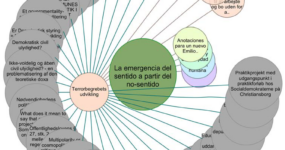
We’ve all asked this question, haven’t we? What is the ideal blog post length?
We are going to not only answer this question but help you to understand the reasons why and how the length of your blog post can help get your content seen more by the right people.
If you are just starting a blog or becoming a blog master, knowing how long to create your content is a part of your strategy to be successful. Let’s find out how many words it takes to get to the best blog post out there.
Table of Contents
ToggleWhat is the Ideal Length for a Blog Post?
As you start writing, you may ask yourself – why does it matter how long my blog is? The truth is, it really does matter!
Content marketing has evolved greatly over the last decade as it becomes increasingly more important to grow your business. If you’re keeping up with the trends, you know that the length of your blog directly impacts your organic SEO.
If you’re an agency owner or a freelancer, your blog can become a lead magnet that can convert leads into loyal customers. At Bramework, we’re in the business of blogging. We help agencies write blogs faster, smarter and help to optimize their reach daily. We know a thing or two about blogs and our mission is to help bloggers everywhere make their content better.
Our research indicates that the ideal blog post length depends on a few factors we will cover.
How to Determine the Length of Your Blog
Determining the ideal blog post length depends on many factors! We’re not only going to cover how long your blog should be but also why length matters so much to the success of your content. Here’s what’s included:
- The Differing Length of Blogs
- Determining your Audience
- Understanding your Reach
- Optimizing Blog Length for SEO
- How to Break up a Long Blog
- The Long and the Short of it
- Saving Time on Long Blogs
When it comes to your blog, it’s important to learn why length can mean more leads. We hope you have a content plan ready before you set out to build leads through your blog. Time to learn how to write longer, smarter blogs that reach more people? Let’s go!
The Differing Lengths of Blogs
When it comes to blogs, there’s a myth that the shorter the blog post the more it will get read. We are here to debunk this myth and set the story straight!
Here are the varying lengths of blogs and the value of each:
- 200-400 words: These extremely short posts are best for discussions and engagement. They don’t get as many social shares and are not adequate for SEO. They are strictly geared for descriptions of products or services and commentary.
- 400-600 words: These are considered smaller blog posts although some say they are “the minimum length”. These are not educational posts, more just bite-size, digestive reads for those less invested. They are pretty good for social shares and engagement, however, too short to drive website traffic or affect SEO.
- 600-1,000 words: These are considered educational posts with a journalistic style. These posts are great for including influencers, reference links and building SEO slowly.
- 1,000-1,500 words: Depending on your audience, these longer articles can really make an impact on your lead conversion. If you write valuable content, the length is considered a powerful tool to drive organic website traffic through link building, partnerships and calls to action.
- 1,500-2,500 words: These articles are known as your “Google go-getters” because the search engines love longer posts! We’ve heard that the highest-ranking posts are 2,450, so that may be Google’s sweet spot. If you are looking to gain organic search traffic, include a lot of valuable reference links to influencers, educate your audience and include downloadable content – go long! (Bramework staff pick!)
You should compile the best practices of blogging that pertain specifically to your brand, your audience and your mission. No matter what blog post length that you choose, we also encourage you to switch it up every now and again. Your blog does not have to be stagnant, it can evolve and change with your brand!
Determining your Audience
Why does your ideal blog post length matter to your target audience? The short answer is that they need to like it!
By now you have determined your audience because your business strategy is in place. Your audience should be a factor in determining your ideal blog post length as well.
It’s best practice to ask yourself these questions when determining your audience and your ideal blog post length.
- Which social media platforms do your audience share content from the most?
- What types of media sources are they following?
- What types of content of they sharing?
- How long are the blog posts that they are engaging with?
The answers to these questions will help you to determine how long your content should be. There is no magic number that every blog will be, every time.
Understanding your Reach
As you set out to write your blog, it’s important to understand that the whole purpose of it is to reach the right audience. Your content is a reflection of your brand, your business and your mission.
When you’re analyzing word count you should take into consideration how far that each word has the ability to reach your target audience. For instance, once you’ve determined your audience you can then make each word “count” pertaining to your readers choices.
Each word of your blog has the potential to reach more people. Remember, people are plugging keywords into search engines every minute of every day! Make each word count, provide value and help the reader get to you – the trusted source.
The bottom line is the right word length of your blog can reach the right audiences and be shared the right way.
Optimizing Blog Length for SEO
One of the ways we mentioned when it comes to the ideal blog post length, is optimizing your post for SEO. The differing blog lengths that really help your article get seen are 1,000 – 1,500 or 1,500 – 2,500 words.
There are several supporting content marketing agencies that have confirmed the length of your blog article will enhance SEO for your brand. Check out Moz, Search Engine Land or HubSpot for reference on how they view blog length as a core component of search engine optimization.
The longer content, say a blog that is 2,450 words, for example, allows the blog to say more, include more value and educate the reader more. It also allows for more room to include backlink opportunities, calls to action and lead magnets. The more engaged you can make your reader, the more time they spend on page and the more Google loves you for it. It’s a win-win.
Don’t forget that you should repurpose this content to maximize your blog being seen in the search engines as well!
How to Break Up a Long Blog
Now that you’ve determined your audience, understood your reach and optimized content for SEO, have you determined that a long blog is for you? If so, we are here to help. Here’s is a quick article on how to write faster and increase productivity for starters.
Writing a long blog takes time, energy and resources. We know this and that’s why we created Bramework to help agencies create blogs in minutes, not hours. If you’re currently spending too many hours a week on content, cut that in half with our easy to use tool.
That being said, breaking up a long blog is important to keep your reader engaged and to help them stay on page. Here are a few ways you can break up a long blog:
- Write shorter paragraphs
- Add spacers or white space in between headings
- Include vibrant, high-quality images (don’t forget your ALT TEXT!)
- Add in bolding where appropriate
- For fun, add in emoji (if it’s on brand)
- Break up paragraphs with calls to action or click to Tweets
The Long and the Short of it
As we don’t want to discourage you from writing shorter blogs, we are offering an unbiased opinion on word count.
Whether you choose to write shorter blog articles or longer ones, you can equally impact your audience with your expertise. Your reader will value a short or long article as long as it provides value to them. We encourage you to to find the right blog length that works for both you and your reader!
If you choose to write shorter articles, you will be tasked with including as much information as possible into the blog – which makes every word count. Your challenge will be that your personality may be left by the wayside because you have to cram a lot of information into few words.
If you choose to write longer articles, you will be tasked with making sure your expertise is precise, correct and properly referenced. You will often be challenged with opposing articles that are fighting for the same keyword ranking and thus may require more effort to compete.
The good news is that we are here to help with that too. Our free keyword analyzer tool will help you figure out how to find keyword competition, rank and volume in minutes.
[“source=bramework”]
| M | T | W | T | F | S | S |
|---|---|---|---|---|---|---|
| 1 | 2 | 3 | 4 | 5 | 6 | |
| 7 | 8 | 9 | 10 | 11 | 12 | 13 |
| 14 | 15 | 16 | 17 | 18 | 19 | 20 |
| 21 | 22 | 23 | 24 | 25 | 26 | 27 |
| 28 | 29 | 30 | 31 | |||



























